Police cut. Who will keep order?
Prior to the signing of the presidential decree, the number of bodies of the Ministry of Internal Affairs of the Russian Federation was defined in 1,113 million employees. The presidential decree states: “to establish the maximum staffing level of the internal affairs bodies of the Russian Federation (without personnel for the protection and maintenance of buildings), funded from federal budget allocations, in the number of 1 003 172 units, including ATS personnel in the number of 835 825 people, federal state civil servants - 5123 people, workers - 162 224 people. " The decree establishing the new number of internal affairs agencies of the Russian Federation was signed by Vladimir Putin on July 13 2015. Actually, this date can be considered the starting point of a new personnel reduction in the Russian law enforcement system.
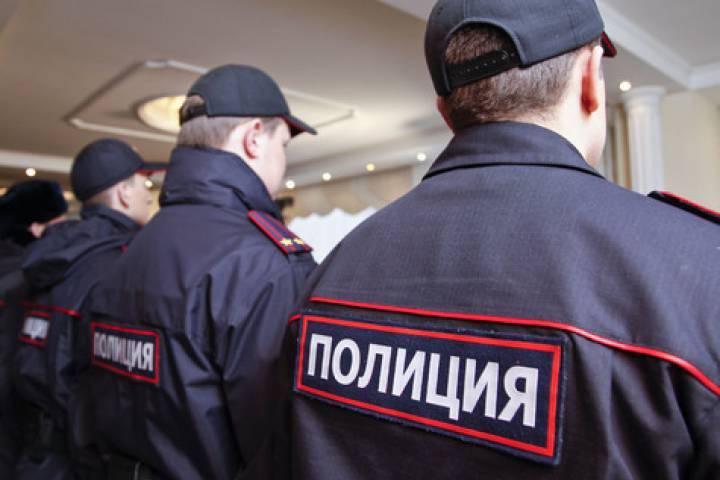
The purpose of the reduction is to reduce the costs of the Ministry
The decision to reduce the number of internal affairs bodies is dictated by considerations of a financial and economic nature. Given the economic problems faced by the Russian state in 2014-2015, it was decided to reduce the cost of government agencies, including the internal affairs bodies. Since the beginning of 2015, the financing of the Ministry of Internal Affairs of the Russian Federation has been reduced by 100 billion rubles. And this is despite the fact that in the Russian Federation, two new subjects appeared - the Republic of Crimea and the city of Sevastopol, which constituted the whole Crimean Federal District. Deputies of the State Duma of the Russian Federation tried to convince the government to abandon the idea of such a large-scale reduction of the internal affairs bodies, but this turned out to be an impossible task. The line of the Ministry of Finance of the Russian Federation prevailed, and the president signed a decree on the reduction of the Ministry of Internal Affairs. That is, in contrast to the previous reduction, this time, economic reasons contributed to the decision to reduce staff, rather than concern for improving the efficiency of the police and other units of the Interior Ministry. The reduction in the number of posts will affect the central office of the Ministry of Internal Affairs, the General Directorate for Economic Security and Anti-Corruption, the General Criminal Investigation Department, and other police structures. It is assumed that a number of hardware posts will be reduced by transferring employees working for them to coordinate the territorial units of the internal affairs bodies. In the General Directorate for Criminal Investigation, the General Directorate for Economic Security and Anti-Corruption, the Directorate of Special Purpose Units can reduce to half the posts.
Of course, the cuts will hit primarily those units that carry out information and cultural support for law enforcement. For example, employees of the press services of the Ministry of Internal Affairs and territorial subdivisions, United Integrated Office of the Ministry of Internal Affairs media group expect reductions (it includes: television editorial, Radio Militia Wave, radio station Shield and Sword, as well as the Police of Russia magazine, Professional ”,“ Medical Bulletin of the Ministry of Internal Affairs ”,“ Commonwealth ”), publishing houses, cultural centers, museums, libraries, musical ensembles of the internal affairs bodies. The need to reduce the staff of such units is due to the spread of information technology and related changes in the organization of educational work. According to officials, the Ministry of Internal Affairs can do without many employees of these units, although it is difficult to deny that the prevention of crime and crime also depends on competent information support, as well as on the openness of internal affairs bodies to the public, cooperation them with community organizations and civic initiatives. On the other hand, museums, libraries, musical groups contribute to the overall raising of the morale of employees, increase the authority of the internal affairs bodies in society, attract young people who want to connect their lives with service in law enforcement. Yes, there may be employees of press services and museums who are not directly involved in police operations, but their contribution to the common cause of fighting crime has also always been significant, it is difficult to underestimate him, and, moreover, to draw definite conclusions that without correspondents, museum workers or musicians can easily get along.
According to the Minister of Internal Affairs of the Russian Federation Vladimir Kolokoltsev, this time the leadership of the Ministry of Internal Affairs will do everything possible so that the cuts do not affect the “base” units working “on the ground” - the criminal investigation department, district police, patrol and traffic police and road patrol. After all, when the police reform was carried out, connected with the transformation of the police into the police, the Ministry of Internal Affairs of the Russian Federation reduced its number by about 20% of employees. It was planned to reduce the apparatus and ineffective policemen, but in reality, the consequences of the reform led to a huge shortage of just the most necessary police officers - precinct police officers and traffic police officers. Is there any guarantee that this situation will not happen again in 2015? So far, despite assurances from the leadership of the Ministry of Internal Affairs of the Russian Federation of the “harmlessness” of cuts for the general background of the fight against crime, the public has already had questions on the course of ongoing organizational and staff activities. So, it became known that the strongest cuts will be held in the units of the Main Directorate of Private Security of the Ministry of Internal Affairs of the Russian Federation - the GUVO is expected to be reduced by about 30%. Recall that the General Directorate of private security is one of the most powerful and numerous police structures. Its responsibilities include the protection of objects and property of all forms of ownership while maintaining the functions of the police in the protection of public order and the fight against crime. Private security is a unique subdivision of Russian law enforcement. Perhaps, this is the only structure of the Ministry of Internal Affairs, which exists not only at the expense of the state budget, but also as a self-supporting organization - private security provides enterprises, institutions and citizens with paid services for the protection of objects and property.
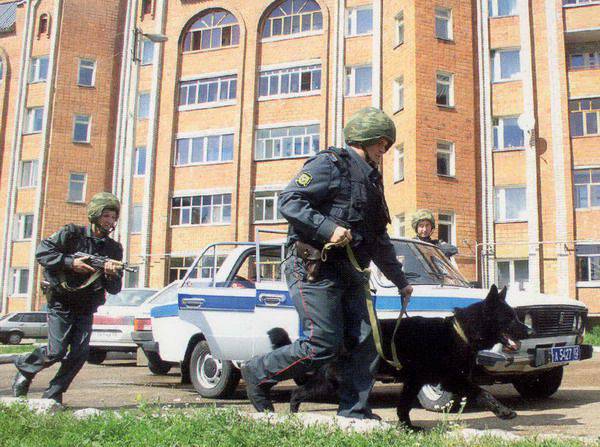
http://www.alfaohrana.ru/vnevedomstvennaya-ohrana/
What awaits the "night police"?
The structure and functional responsibilities of private security are rooted in the Soviet past of the domestic law enforcement system. 3 March, March 1920, 95 years ago, an industrial police force was created to protect industrial facilities and stocks, which became the predecessor of private security. In February, 1924 was created departmental police, whose duties included the protection of the property of state enterprises and institutions, the protection of law and order in protected areas. The departmental militia was maintained at the expense of those objects of the national economy, the protection of which it carried out. In 1952, under the Ministry of Internal Affairs of the USSR, the Independent Departmental External Guard (VNSO) was created, which in 1959 was given the authority to inspect and control the departmental security units that carry the guard and security services at industrial and national facilities. In 1966, the “Model Provision on Private Security at Internal Affairs Bodies” was adopted. After the transition to a market economy, the private security guards of the Ministry of Internal Affairs received new incentives for their existence and activities. The “dashing nineties” forced many enterprises and even individual citizens to turn to private security for help in organizing the protection of their property. At the same time, the units of private security also perform the functional duties of the usual units of the patrol and inspection service, guarding public order along the route of their patrols. Differences from the patrol service are that if a signal arrives from a protected object, the private security crew quickly responds to it and is removed from the patrol route, going to the protected object. Thus, private security makes a great contribution to the protection of public order on the streets. Many law enforcement officers believe that private security units are among the most effective and efficient in the ranks of the modern Russian police. After all, it is not for nothing that the off-site security service is called the “night police” - detention groups of the off-site security guard arrive promptly at a signal at any time of the day, they are on the streets, patrolling after midnight police have stopped their work. In addition to guarding objects, private security officers also check documents of suspicious citizens on the street, deliver persons in a state of alcohol and drug intoxication to territorial departments, travel to family scandals and fights in places of public rest, participate in operations to catch dangerous criminals. Never provoked complaints and combat training of private security officers. By the way, private security arrives on calls in helmets, body armor and with automatic weaponsThis is a combat and combat unit of the domestic police.
“Regulation on private security at the internal affairs bodies of the Russian Federation” was adopted on August 14 1992, and in 1993-2005. The private security also included the militarized security guard (VOKhR), which was responsible for the protection of objects and property. After the Federal State Unitary Enterprise Okhrana (FSUE Okhrana) of the Ministry of Internal Affairs of the Russian Federation was established in 2005, it was reassigned to the units of the militarized and guard guard, as well as the technical services that were previously part of the private security. Actually, the police units remained in the Department of State Protection of the Property of the Ministry of Internal Affairs of the Russian Federation. In 2006, the number of private security in the Russian Federation was about 350 thousand people, including 157 thousand certified police officers and 113 thousand militarized and guard officers of the FSUE “Protection”. In 2012, the number of PSB units, in accordance with the ongoing reform, was reduced by 22%. In accordance with the latest measures to reduce the number of internal affairs agencies, more than 43 thousands of employees will be fired from private security. It is assumed that in the ranks of the General Directorate of private security will be reduced, first of all, hardware services, as well as police, serving the protection of commercial financial institutions and museums. At the same time, the reduction of the FSUE “Protection” will not be made, since more than 40 thousand employees, who are considered civilians and are self-supporting, work in this structure. By the way, the FSUE “Protection” after its creation and increase of efficiency turned into a structure, in many respects resembling private security, except without performing police functions. Among the reasons for the reduction in the number of private security units are usually called the high cost of funding for police officers engaged only in the security service at commercial and some government facilities. It is emphasized that the police protection of important administrative institutions and objects of state importance will not be refused - in fact, in this case the state has no other way out. But commercial customers and government facilities, mandatory protection for which is not provided by the legislation of the Russian Federation, will no longer be able to use the services of private security.
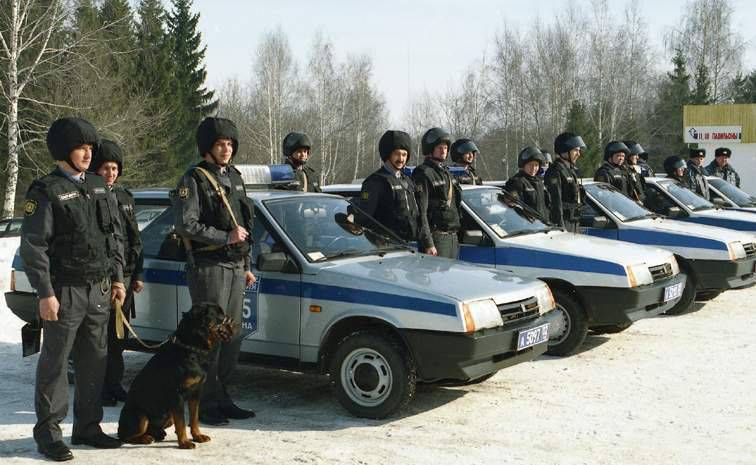
Who will protect the objects?
By 1 in November 2015, in accordance with the decree of the Minister of Internal Affairs of the Russian Federation Vladimir Kolokoltsev, the General Directorate of private security of the Ministry of Internal Affairs of the Russian Federation must terminate the agreements on the protection of stationary objects. Until recently, police officers protected 3,5 thousands of objects of state importance, but as a result of the ongoing reduction of positions in departments and departments of private security, the number of protected police facilities may be reduced to 262. In accordance with the law, Russian ministries will be able to create their own security services. Currently 15 federal ministries and departments have the right to create their own protection. These are the Ministry of Defense, the Ministry of Emergency Situations, the Ministry of Finance, the Ministry of Industry and Trade, the Ministry of Agriculture, the Ministry of Communications, the Ministry of Transport, the Ministry of Energy, Rosatom and Roscosmos, a number of other structures. As for those organizations that do not have the right to form their own guards, they will have to apply for security services to FSUE “Protection”, which is part of the Ministry of Internal Affairs of the Russian Federation, or to private security companies and enterprises. Needless to say, this decision caused bewilderment to many people familiar with the specifics of the activity of private security. It is well known that private security is much superior to private security companies in the possibilities of applying sanctions to violators of order - after all, private security officers are police officers and can apply sanctions that employees of private security companies do not have the right to. Secondly, private security in a profitable way differs from private security companies and in the real level of combat and service training of its employees. As certified police officers, private security officers have an appropriate level of training and are well aware of their rights and obligations. Among the private security personnel, most have experience in military service, both urgent and as officers. As well as employees of other police units, private security officers are regularly checked for professional competence, they organize advanced training. Differs for the better, as compared with private security guards, and the moral and psychological motivation of private security officers.
Last but not least, the cost of security services provided by the private security department of the Ministry of Internal Affairs of the Ministry of Internal Affairs of the Russian Federation has always been significantly lower than that of FSUE Guard, which is also part of the Ministry of Internal Affairs (approximately two to three times). About the ratio "price - quality" in comparison with private security companies can not speak.
Naturally, a large-scale reduction in private security is already causing discontent among citizens and commercial organizations. It is doubtful that this step is justified in the conditions of the economic crisis, accompanied by inflation and the deterioration of life of the population and potentially contributing to the growth of crimes and offenses, including penetration of protected objects. With regard to territorial units, field-based structures of private security have always been an important component of the overall system of public order and the fight against crime. Take, for example, the Rostov region. According to the reports of the press service of the State Department of the Ministry of Internal Affairs for the Rostov region, a significant part of the crimes is prevented by private security officers, they also most often “take” criminals without delay. Recall that it was the private security crew that discovered the famous “gang of Amazons”, which carried out attacks and murders of law enforcement officers in the territory of the Rostov region. In addition, the Rostov region is currently a potentially problematic region for law enforcement, given the close proximity of the belligerent Donbass, a large influx of refugees and the associated consequences, which may also have a criminal nature. However, according to some sources, only in the Rostov region intend to reduce to 15% of private security personnel. However, they promise that the cuts will affect only employees serving at security posts in commercial and state organizations, while the engineering and technical staff and the composition of the detention teams will continue to serve as usual.
- photo: http://voenpro.ru
For many government agencies, the decision to remove police guards from them has become extremely unpleasant. news... Thus, the objects of the Ministry of Culture of the Russian Federation will be deprived of police protection. First of all, we are talking about state museums, which until recently were guarded by police officers. The risk of being left without protection worried the leadership of the country's museums and the Ministry of Culture of the Russian Federation in general. Ultimately, the Minister of Culture of the Russian Federation Vladimir Medinsky said that the protection of state cultural and historical valuables will be entrusted to employees of the Federal State Unitary Enterprise "Okhrana" of the Ministry of Internal Affairs of the Russian Federation, who will serve at posts instead of police officers. The Ministry of Culture asks the Ministry of Internal Affairs for the protection of objects of national importance for 63. Despite the fact that the services of the FSUE "Protection" are much more expensive than the services of private security, domestic museums and libraries have nowhere to go. The Ministry of Culture of the Russian Federation will have to contact the Ministry of Finance on the allocation of additional funds from the federal budget for the protection of state museums, libraries and other cultural objects of federal significance. At the same time, the personnel of the protection of museums can hardly change. The fact is that most of those private security officers who will fall under the reduction, but will want to continue the service related to law enforcement, are likely to transfer to the FSUE “Protection” and continue to serve on the same facilities, only as unattended security officers. Until 1 November 2015 Russian museums, libraries and archives must conclude an agreement with FSUE “Protection” for the protection of their premises and territories, since with 1 in November 2015, The activities of the Ministry of Internal Affairs of the Ministry of Internal Affairs in fulfilling contractual obligations in the field of protection with cultural institutions will be terminated. Most likely, most of the Russian cultural institutions will conclude agreements with FSUE “Protection”. Of course, they have the opportunity to turn to private security companies, but not every museum agrees to cooperate with private guards, since the leadership of cultural institutions may doubt the level of training and the level of integrity of employees of any security companies. In addition, FGUP Okhrana is staffed primarily with former police officers, security agencies, and former members of the armed forces. That is, the level of training and moral and psychological motivation among the employees of the FSUE "Protection" is at the proper level. It should also be noted that the employees of FGUP Okhrana are armed not only with pistols, but also automatic weapons, and within the Federal State Unitary Enterprise there are mobile immediate response teams patrolling the areas around protected objects on cars and promptly arriving at a signal coming from the protected object. The reform of the protection of museums will also include the introduction of the protection of museums by mobile patrols. In the event of an alarm button or phone call, the employees of FSUE “Protection” will quickly go to the protected object, finding themselves there in a few minutes. At the same time, the police private security will also be involved in the protection of museums. So, the alarm signals will be received both at the security guard center of the FSUE “Protection”, and at the control panels of the private security units. Accordingly, the signal to the museum will arrive either a mobile patrol of the FSUE “Protection”, or the crew of the private security detention group.
The cuts are waiting for the device, but can they affect the “ground”?
The management of the Ministry of Internal Affairs of the Russian Federation reports that the bulk of the cuts will affect hardware posts. However, the employees themselves - current and former - are quite skeptical about such allegations. They rely on the experience of previous years, when, under the pretext of optimizing the activities of the internal affairs bodies, the most serious reductions followed precisely in the lower divisions of the Ministry of Internal Affairs. The head of the police trade union, Mikhail Pashkin, in an interview with the newspaper Vzglyad expressed doubts that grassroots divisions would be able to avoid cuts. During the previous cuts, notes Pashkin, “ended up cutting the bottoms. Tops a little bit reduced, and then they filled the posts "on the ground." The number of private security - 45 thousand people. Where will they go? The same with the rest, which will be reduced. We are told that in the Ministry of Interior 6% is incomplete, and it is these posts that will be reduced. But have you ever seen one vacant position of the head or personnel officer? The bulk of the incomplete - "on the ground." And we are told, "land" will not be reduced. It means that they will reduce the number of working employees ”(quoted in: The Ministry of Internal Affairs prescribed to reduce every tenth employee // http://www.vz.ru/society/2015/7/13/755925.html).
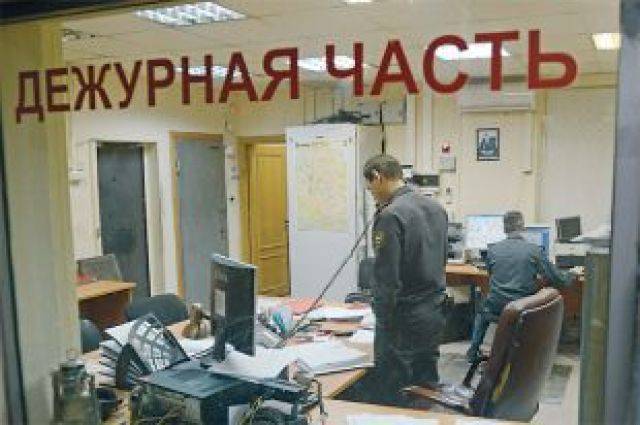
Indeed, after the famous reform carried out by the previous Minister of Internal Affairs, Rashid Nurgaliyev, the number of, for example, district police officers was significantly reduced. Meanwhile, it is the district police that is the most important link in the protection of order, on which not only crime prevention, but also the interaction of the police with the population rests. The public perception of the protection of public order, the fight against crime and, in general, of power, depends on the activities of the district police officers. If people do not see the results of the work of the district police officer, they begin to perceive the executive branch negatively - first the police, and then the administration. At the same time in the ranks of the district there is a large shortage, which affects the performance of this unit. One precinct authorized today works for two, three, or even five colleagues, and he simply does not have time to fully service the entire territory entrusted to him. In turn, the population begins to complain - why the police are not working? Overworked precinct precincts are dismissed from internal affairs agencies or transferred to other units, no one goes to precinct posts, which ultimately creates a lot of problems not only for the police, but for the whole society.
At the same time, there are a number of police posts that, in the opinion of the Moscow police union, can be reduced without any special negative consequences for the protection of public order. The union of police officers includes the following positions (the Ministry of Internal Affairs prescribed to reduce every tenth employee // http://www.vz.ru/society/2015/7/13/755925.html):
1) Chiefs of duty units. In the territorial divisions of the Ministry of Internal Affairs of the Russian Federation, the actual operational duty organization is carried out by senior operational duty officers of district offices. However, if the functions of the chief of the duty officer are transferred to the senior operational duty officer, then an additional duty officer should be introduced. At the level of the directorates and the main directorates of the Ministry of Internal Affairs of the Russian Federation, in the opinion of the trade union, it is advisable to leave the post of the head of the duty unit - he will be engaged in analyzing and collecting information and monitoring the performance of the duty units of the lower-level police units.
2) Deputy Chiefs - Chiefs of Police at all levels of territorial units. The fact is that this post actually duplicates the post of the head of the OMVD, UMVD and GU MVD. Meanwhile, each activity of the internal affairs body has its leader. Therefore, the police union makes a recommendation to reinstate the former positions of deputy chief of the criminal police and public security police.
3) Deputy heads of departments of inquiry at all levels. This position, from the point of view of the management of the trade union of police officers, does not bear any duties, except for the replacement of the head of the department of inquiry during his absence. Therefore, the functional responsibilities of this position can be quietly transferred to senior investigators, which should be spelled out in the relevant job description.
4) Deputy Heads of Divisions of District Police Commissioners. This position has similarities with the post of deputy head of the department of inquiry, since it does not impose any duties on the employee who replaces it, except for replacing the head of the department during his absence at the workplace. The deputy chiefs of district officers do not serve specific areas and do not fulfill the duties of a district police officer, which does not at all contribute to the effectiveness of the activities of the district police officers.
5) Employees of private security departments and departments who guard the objects of public institutions and perform the duties of security guards. Among these officers there are not just certified police officers, but employees of the middle and senior commanding officers of the police, who actually have no other duties than carrying out security activities at the facility. Therefore, the trade union of police officers spoke in favor of transferring the protection of objects to FSUE “Okhrana” or private security companies.
6) Employees of the commandant units that carry out access control on the territory of the departments and divisions of the Ministry of Internal Affairs of the Russian Federation. A strange situation arises when the internal affairs agencies, whose employees have the right to carry firearms, are guarded by the same police officers. Therefore, the staff of the curfew groups must be included in the duty units of the units, and the duty personnel must fulfill the duties of guarding the buildings.
7) Police convoy staff. The convoy divisions are charged only with escorting the suspects and the accused, except for the performance of which the police officers employed in the convoy divisions no longer do anything. According to the police union, the functional duties of a convoy can be transferred to the bailiff service. Moreover, in the territorial divisions, the duties of escorting suspects and accused are often carried out by officers of various police departments, from patrol officers to district police officers and criminal investigation officers.
Of the listed categories of police officers whose posts could be reduced, the most questions are raised only by the idea of reducing the convoy police. So far we do not know anything about the fact that the Ministry of Internal Affairs is going to reduce convoy units and, moreover, to transfer the escort functions of suspects and detainees to the bailiff service. Meanwhile, the very possibility of such a move contributes to very lively discussions in specialized forums. Bailiff services are in fact civilian organizations staffed by civil servants, not all of whom even have experience in the military or have received special training. The convoy and guard units of the suspects and detainees, operating as part of the territorial police units, are “classic” combat police units - regiments, battalions, companies, platoons, squads, which are strictly ordered and carried out by certified police officers. The transfer of escort service to the bailiffs will significantly worsen the protection of suspects and detainees, moreover - in the future it can entail a lot of tragic situations. On the other hand, it raises questions and uses for escorting officers of other police units, since the latter (local police officers, criminal investigation officers, officers of the patrol and inspection service) must fulfill their duties without being diverted to escort duties.
- photo: http://novayagazeta-ug.ru/
In addition to the reduction of non-departmental security units, it is possible that the number of internal affairs bodies in transport will be significantly reduced. The Transport Police has always remained a fairly separate unit, but one should not underestimate its need for the common cause of combating crime. Transport police officers carry out very specific and complex tasks in the fight against crime and the protection of public order, often significantly exceeding the level of complexity of the tasks of territorial police units. However, the Minister of Internal Affairs V. Kolokoltsev said that the employees of the linear divisions of the internal affairs, who maintain order in the water and railway transport, should not expect redundancies. In 2011-2012. The idea of a complete reduction of the transport police units, which is very dubious in its content, has already been discussed, but the leadership of the Ministry of Internal Affairs of the Russian Federation, fortunately for the employees, and, first of all, for the citizens themselves, did not take this step. As a result, at present, the transport police units will not seem to be affected by reductions, at least - that part of them that directly works "on the ground", that is, in trains, at stations, in water transport. It was decided not to make reductions also in small aviation subdivisions of internal affairs bodies and in special-purpose subdivisions performing the most dangerous and complex functions, including within the framework of ensuring the anti-terrorist security of the Russian Federation.
It should be noted that the leadership of the Ministry of Internal Affairs of the Russian Federation, realizing the significant geographical, economic, socio-demographic, political differences of the regions of the Russian Federation, decided to reduce the posts in the internal affairs bodies at the regional level to be guided by the analysis of the specificity of a particular region. So, in Moscow, almost 7 thousands of posts are being reduced. In the Rostov region, about 1200 posts will be reduced at the Main Directorate of the Ministry of Internal Affairs of the Russian Federation for the Rostov Region and the North Caucasus Directorate of the Ministry of Internal Affairs of the Russian Federation in transport. However, considering that the World Cup will be held in Rostov-on-Don in 2018, and the region as a whole is border and adjacent to the belligerent Donbass, the regional administration, as a result of negotiations with the leadership of the Ministry of Internal Affairs, reduced the number of abbreviated posts. As a result, not 10% police posts will be reduced in the region, but only 5%. In the Stavropol and Krasnodar Territories, with the reduction of posts, the specifics of the regions will be taken into account, as in the republics of the North Caucasus. It was decided not to reduce positions in the Crimean Federal District, as well as in police units guarding order in a number of national regions of the Far North and the Far East, in view of the small number of personnel. Thus, the reductions do not affect the Chukotka and Nenets Autonomous Districts, the Jewish Autonomous Region. Thus, it is pleasing that in case of organizational and staffing events, the leadership of the Ministry of Internal Affairs of the Russian Federation will take into account the real needs of society for the police, at least in the “problem” regions of the Russian Federation.
Remains relevant and the issue of employment of those police officers who fall under the reduction and will be forced to leave the ranks of the internal affairs bodies of the Russian Federation. After all, many of them have served most of their lives in the police and have no civilian profession, or have lost their skills due to their long-term service in law enforcement. Of course, a significant part of the police will join the ranks of the same FSUE “Protection”, departmental security of the Russian Railways and other state corporations, and private security companies. But some experts warn about the possibility of leaving some downsized employees in shadow structures that offer money and opportunities incompatible with the wages of security guards. To prevent this, or, at least, to a considerable extent, minimize it, the authorities, with the participation of the public and commercial organizations, need to develop a program for the employment of former law enforcement officers.
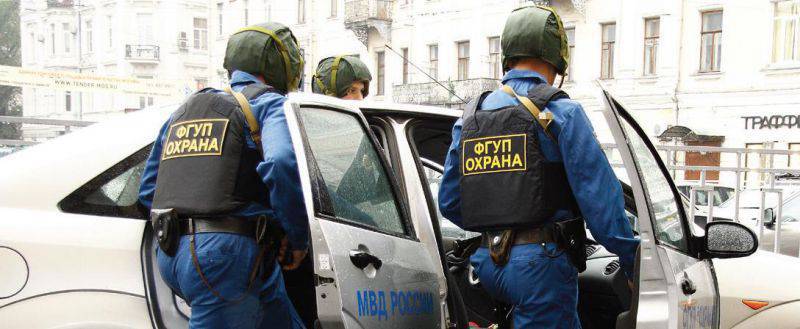
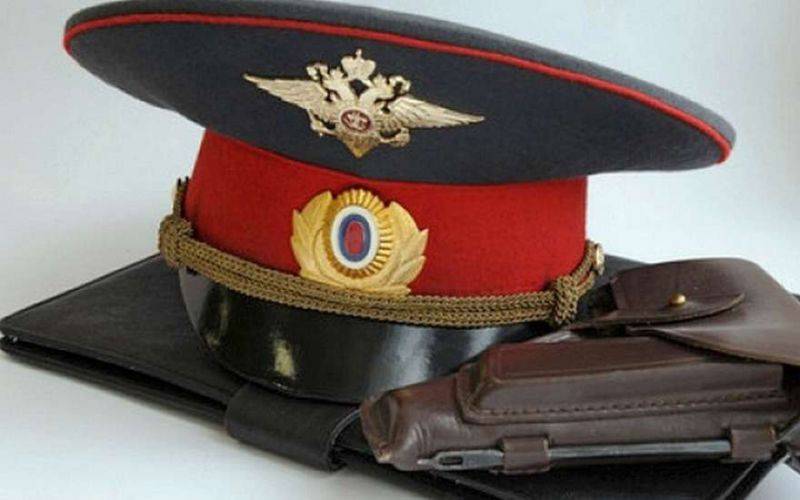
Information